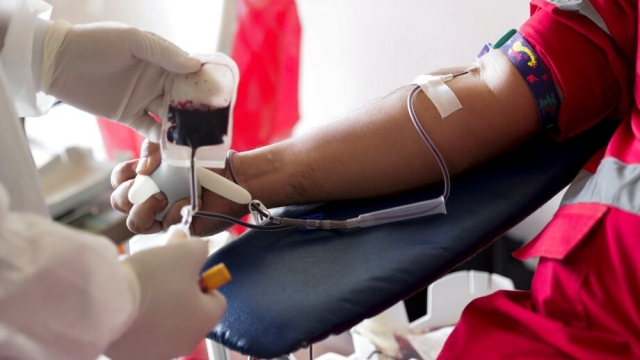Hurricane Lee, with its powerful winds and heavy rains, is approaching the Northeast Coast, prompting tropical storm warnings for parts of New England and the Canadian coast.
The American Red Cross is closely monitoring the storm, expressing concerns that it could cause further disruptions in the collection of critical blood donations.
The U.S. supply has dropped to critically low levels in just the past month. The organization pointed to "back-to-back climate disasters and a critical summer shortfall" in donations for the steep decline.
"It's really a combination of summer travel, severe hurricane season, and back-to-school activities that has brought us to this situation where we are experiencing a 25% drop in our blood inventory since August," Dr. Baia Lasky, a medical director for the Red Cross, said in an interview with Scripps News.
Demand for blood doesn’t stop during the summer or during severe weather, and the shortage threatens medical care.
SEE MORE: France plans to lift ban on blood donations from gay men
"Hospital demand is as strong as it’s ever been ... for trauma patients, surgeries, patients with sickle cell disease, and so forth," Lasky said. "The demand is as strong as it’s ever been. So, when our supplies are low, that impacts the hospital’s ability to provide for their patients."
Blood donations are only part of it. There’s also an "emergency need" for blood platelets.
Platelets circulate in the blood, and they are crucial and bind together when blood vessels are damaged.
"When you get a cut, for example, the platelets bind to the site of the damaged vessel, thereby causing a blood clot," Dr. Marlene Williams, director of the Cardiac Intensive Care Unit at John Hopkins Bayview Medical Center, told Johns Hopkins Medicine.
"There’s an evolutionary reason why they’re there. It’s to stop us from bleeding," Williams said.
Platelets are critical during surgeries and for cancer patients, Lasky said.
The Red Cross collects them through a different process than blood.
"They actually only have a five-day shelf life. So, we’re very dependent on daily donations to maintain a steady supply," Lasky said.
According to Lasky, about 40% of the country's population is eligible to donate but only 4% do so.
Donating blood or platelets is easy. Find a location at RedCrossBlood.org.
Trending stories at Scrippsnews.com



